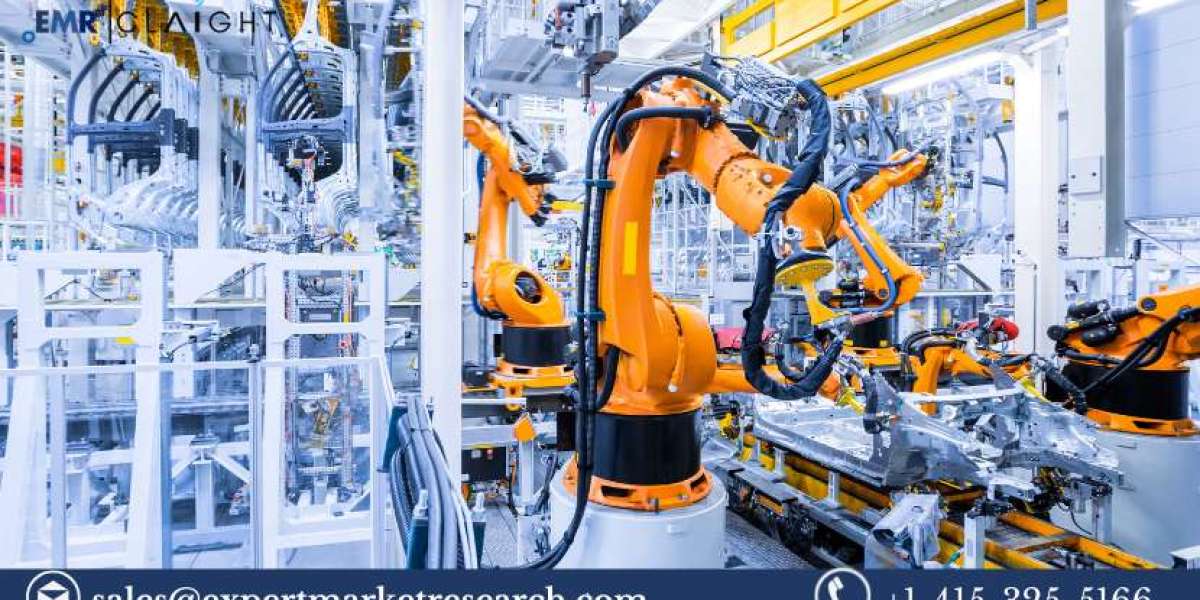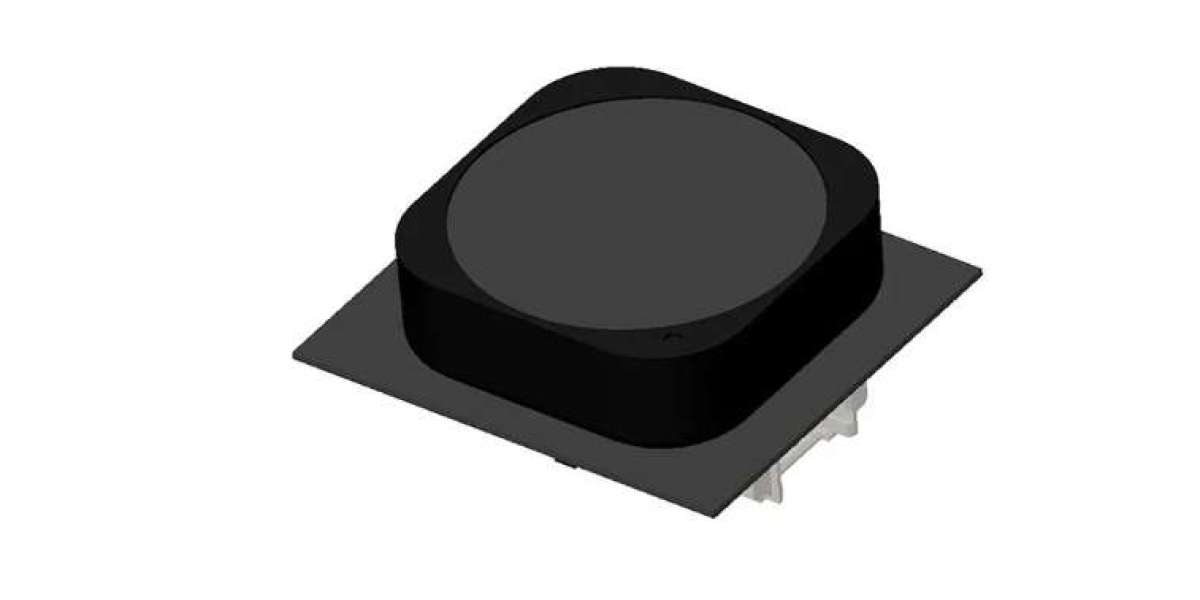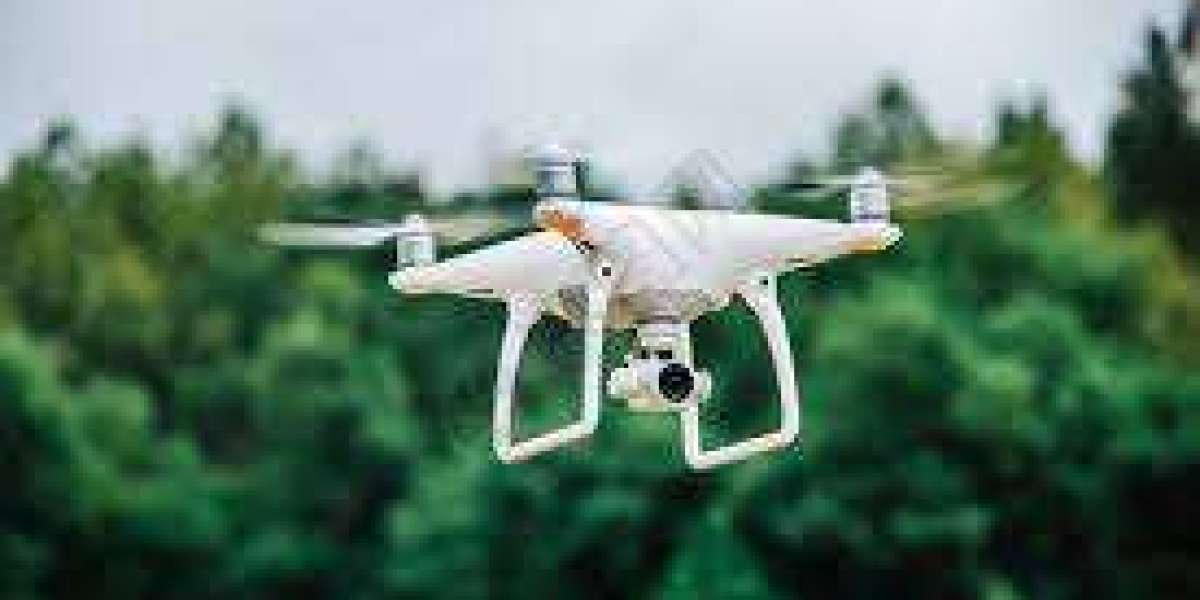Market Overview
Industrial automation refers to the use of control systems, such as programmable logic controllers (PLCs), robots, and supervisory control and data acquisition (SCADA) systems to control industrial processes. The market is driven by the increasing need to enhance operational efficiency, improve quality, reduce human intervention, and ensure safety in manufacturing and industrial environments.
The rise of Industry 4.0, characterised by IoT (Internet of Things), AI (Artificial Intelligence), and machine learning, is further fuelling the demand for automation technologies. In addition to cost-saving, industrial automation plays a crucial role in optimising supply chains, streamlining production lines, and enabling faster time-to-market.
Industrial Automation Market Size & Share
In 2023, the global industrial automation market was valued at USD 192.74 billion. The market is forecast to expand significantly, achieving a market size of USD 401.48 billion by 2032, growing at a CAGR of 8.6% during the forecast period. The growth is being driven by several factors, including:
- Technological Advancements: Continuous innovation in automation technologies such as robotics, AI, and IoT.
- Increased Adoption of Automation: Growing demand for automation in various sectors like manufacturing, energy, automotive, chemicals, and food processing.
- Operational Efficiency and Cost Reduction: Automation solutions help companies reduce operational costs and improve productivity.
- Industry 4.0 Integration: The adoption of smart factories and intelligent systems is revolutionising manufacturing processes.
Market Segmentation
The industrial automation market is segmented based on various factors, such as:
By Component:
- Control Systems (PLCs, SCADA, DCS)
- Industrial Robots
- Field Devices (sensors, actuators)
- Others (drives, motors)
By Industry:
- Automotive
- Chemical & Petrochemical
- Food & Beverage
- Pharmaceuticals
- Oil & Gas
- Others (electronics, textiles, etc.)
By Geography:
- North America
- Europe
- Asia Pacific
- Latin America
- Middle East & Africa
Market Dynamics & Trends
Key Market Drivers
Increasing Demand for Automation in Manufacturing: With global competition intensifying, industries are focusing on reducing costs, improving product quality, and speeding up production cycles. Industrial automation provides a solution by offering precision, consistency, and greater control over operations.
Technological Innovations: The continuous development of advanced technologies like AI, machine learning, and IoT is enabling more sophisticated automation solutions. Smart sensors and predictive maintenance technologies are particularly popular for ensuring machine uptime and reducing maintenance costs.
Government Initiatives: Governments across the world are encouraging industries to adopt automation technologies, offering incentives and policies aimed at modernising manufacturing sectors. For example, in China, the "Made in China 2025" initiative aims to upgrade the country's manufacturing industry by promoting smart manufacturing.
Get a free sample request :https://www.expertmarketresearch.com/reports/industrial-automation-market/requestsample
Key Trends in the Industrial Automation Market
Rise of Industry 4.0: The integration of cyber-physical systems (CPS), big data analytics, and cloud computing is transforming traditional manufacturing operations into intelligent, connected systems.
Shift Towards Collaborative Robots (Cobots): Cobots are gaining traction as they are designed to work alongside humans in a shared workspace, enhancing productivity without the need for safety barriers.
Edge Computing and IoT Integration: The increasing adoption of IoT devices is allowing real-time data collection and analysis, resulting in more responsive and efficient automation systems.
Sustainability in Automation: Companies are now focusing on sustainable production practices, driving the adoption of energy-efficient automation systems to meet environmental standards.
Market Growth
The industrial automation market is projected to experience robust growth, primarily due to the following factors:
Adoption of Smart Manufacturing: Companies are increasingly investing in smart factories, which use advanced automation systems to monitor and optimise production processes in real time.
Rising Labour Costs: The increasing cost of labour in developed economies is prompting industries to replace manual labour with automated systems.
Expanding Industrial Sectors: Growing industries like automotive, food and beverage, chemicals, and pharmaceuticals are contributing to the demand for automation technologies to streamline production and ensure high-quality standards.
Global Supply Chain Optimisation: Automation solutions help manufacturers improve supply chain visibility, reduce errors, and optimise inventory, which is crucial in today’s complex global supply chains.
Market Opportunities and Challenges
Opportunities
Emerging Markets: Countries in Asia Pacific, Latin America, and the Middle East are investing heavily in industrial automation, driven by the need to modernise their manufacturing sectors. The growing industrialisation of these regions offers significant market opportunities.
Customization and Integration: Automation solutions are increasingly being customised to suit specific industry needs. Companies offering tailored solutions are expected to tap into a broader market, particularly in specialised industries.
Energy-efficient Automation: There is a growing opportunity for companies to develop energy-efficient automation systems to address environmental concerns and comply with stringent environmental regulations.
Post-Pandemic Recovery: The recovery from the COVID-19 pandemic has spurred investments in automation systems, as industries seek to future-proof their operations against disruptions and reduce dependency on human workers.
Challenges
High Initial Costs: While automation systems lead to long-term savings, the high upfront investment required for implementing automation can be a barrier, especially for small and medium-sized enterprises (SMEs).
Integration Complexities: Integrating automation solutions with existing systems and processes can be complex and time-consuming. Many companies face difficulties in seamlessly adopting new automation technologies.
Cybersecurity Risks: As automation systems become more connected, the threat of cyberattacks also rises. Companies need to invest in robust cybersecurity solutions to protect their operations from potential data breaches or system failures.
Skilled Workforce Shortage: The demand for skilled workers to design, implement, and maintain automation systems is growing. A shortage of qualified personnel can hinder the growth of the market.
Competitor Analysis
The global industrial automation market is highly competitive, with several leading players dominating the landscape. These companies are focusing on innovation, partnerships, and acquisitions to strengthen their market positions.
Key Industry Players
Siemens AG: Siemens is a global leader in industrial automation, offering a comprehensive range of products and solutions, including control systems, industrial software, and robotics. The company is known for its strong presence in automation solutions for sectors like energy, manufacturing, and infrastructure.
Emerson Electric Co.: Emerson provides automation and control solutions for industries like oil and gas, power generation, and chemicals. It is a key player in the industrial automation market, offering both hardware and software solutions to optimise industrial processes.
ABB Ltd.: ABB is another major player in the industrial automation market, known for its robotic automation solutions, control systems, and electrification technologies. The company’s automation products are widely used in automotive, chemicals, and energy sectors.
Rockwell Automation, Inc.: Rockwell Automation offers a wide range of automation products, including PLCs, SCADA systems, and industrial robots. The company focuses on providing integrated automation solutions that enhance productivity and efficiency.
Mitsubishi Electric Corporation: Mitsubishi Electric provides automation solutions across various industries, including manufacturing, automotive, and energy. Its portfolio includes robotics, PLCs, SCADA, and other control systems.
Schneider Electric: Schneider Electric is a leader in energy management and industrial automation. The company’s automation solutions are designed to improve operational efficiency while reducing energy consumption and environmental impact.
Texas Instruments Incorporated: Texas Instruments provides semiconductor-based automation solutions, including processors and microcontrollers, which are used in industrial applications like motion control and automation systems.
Recent Developments
- Siemens AG has strengthened its market position through strategic acquisitions, including its purchase of CD-adapco, a leader in simulation software, to enhance its industrial automation offerings.
- Emerson Electric Co. has expanded its presence in the market by acquiring National Instruments, a move that enables the company to offer advanced measurement and automation technologies.
- ABB Ltd. continues to innovate in robotics, with new solutions designed to improve automation in sectors like food and beverage, pharmaceuticals, and automotive manufacturing.
The industrial automation market is poised for significant growth in the coming years, driven by technological advancements, increasing demand for operational efficiency, and rising adoption of automation solutions across various industries. While there are challenges, such as high initial costs and the need for a skilled workforce, the opportunities in emerging markets, smart manufacturing, and energy-efficient solutions provide substantial growth potential for players in the market. Leading companies like Siemens, ABB, and Rockwell Automation are well-positioned to capitalise on these trends, offering a wide range of solutions to meet the growing deman.








